
For your health
«The ideogram for tea in Mandarin means the plant that grows in a tree and is good for humans. We revisit the extraordinary traditional Chinese medicine by combining it with scientific innovation to offer you health teas that are ancestral but resolutely up-to-date.»
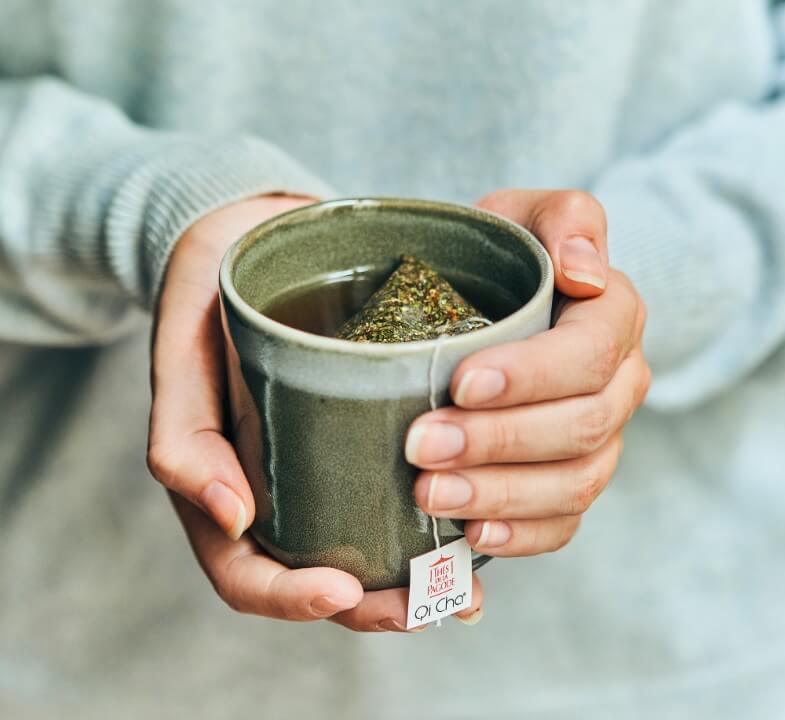
Brewing health
We have always put your health at the heart of our approach so that this small green leaf reveals all its extraordinary properties. We are the only ones able to keep such a promise by innovating on a daily basis to offer you organic teas that are as good for your health as they are for the planet.
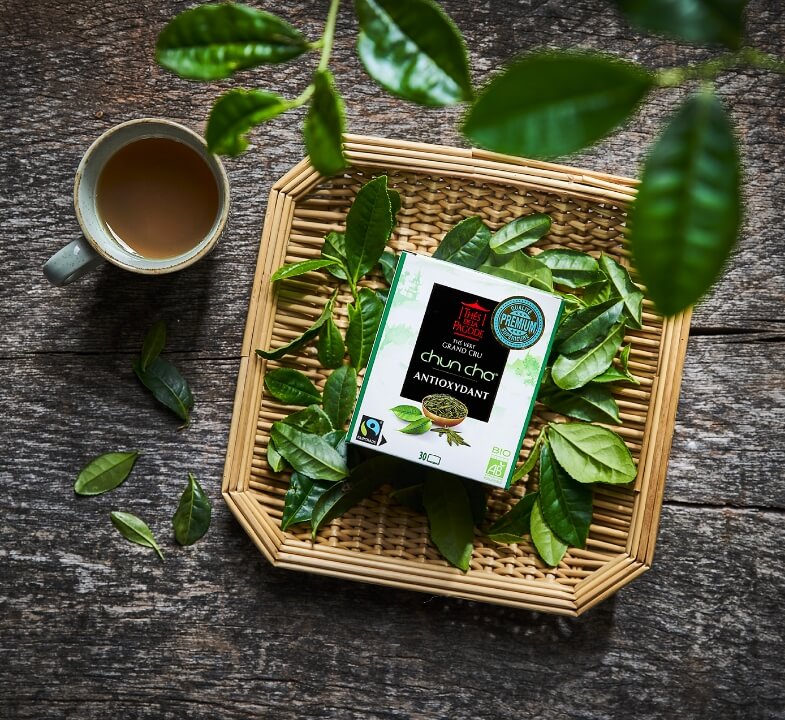
Tea, the king of antioxidants
Stress, pollution, smoking, alcohol... so many factors that can generate oxidative stress and attack the body's cells on a daily basis. To defend itself, our body can rely on the antioxidants provided by our food. Tea is one of the richest medicinal plants in polyphenols, antioxidants known for their effects on health. Lowering cholesterol, reducing the risk of cardiovascular disease, fighting the effects of pollution or even delaying ageing, there is no battle too big for this superfood!
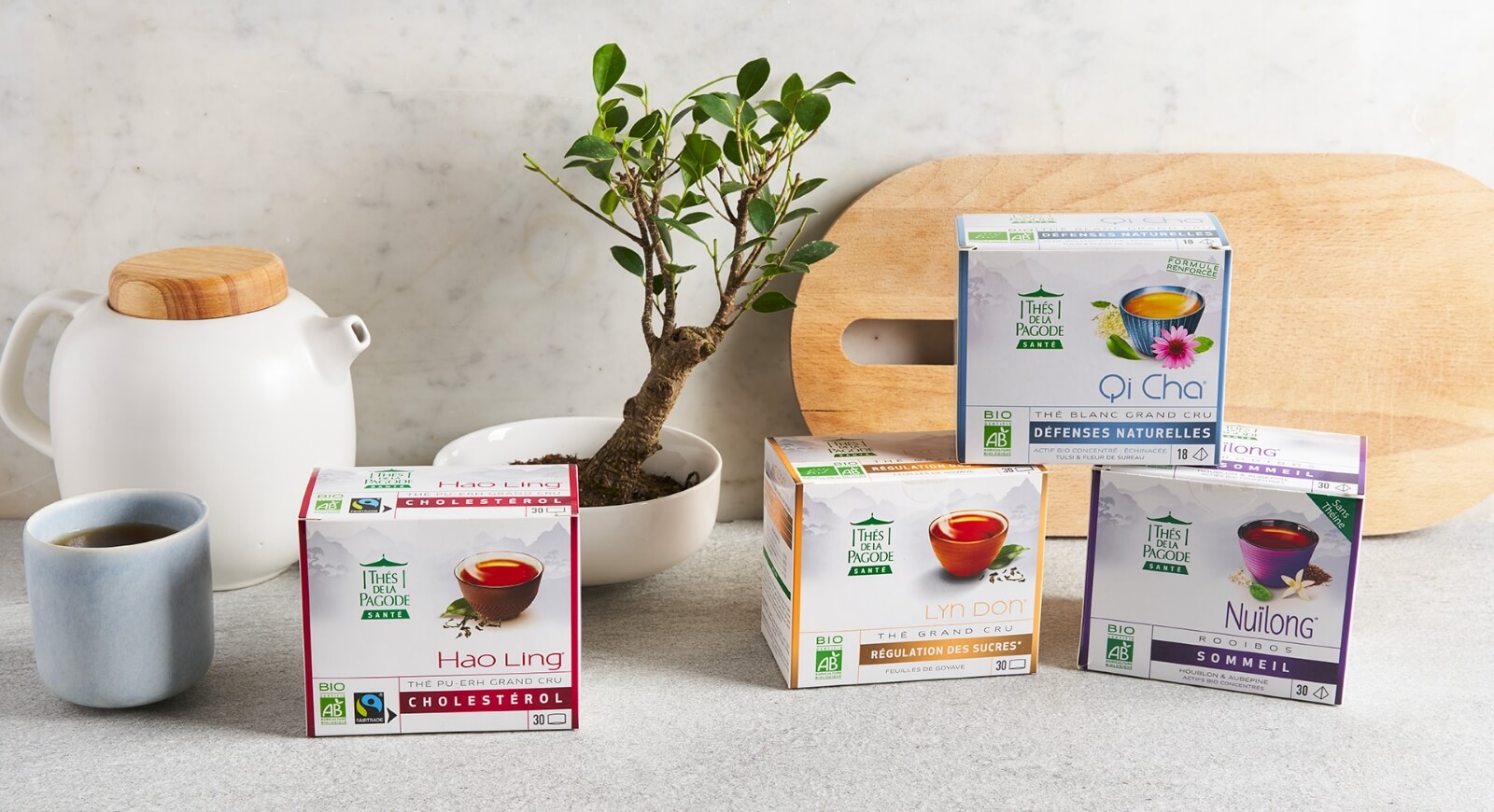
Our patented innovation
We have always wanted to combine innovation with ancestral know-how to optimise the benefits of our teas. This is why we have created a unique patent for enriching tea leaves with dry extracts of organic medicinal plants: the Actifs Bio Concentrés® or ABC patent.
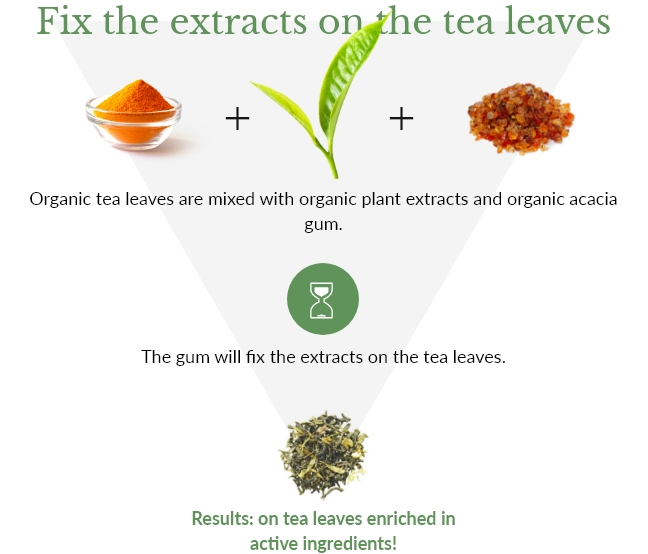
Principle of the ABC patent
This process consists in fixing dry extracts of medicinal plants on green tea, pu-erh tea or rooibos leaves. It is possible to use several dry extracts of plants with complementary actions, in addition to tea, in the same tea bag for optimal effectiveness. For this purpose, we use organic acacia gum with adhesive properties.
But what is a dry plant extract?
It is a fine powder from a plant with specific properties. A dry extract is much more concentrated in active ingredients than the dry plant (or part of a dry plant).
How to obtain a dry plant extract?
A dry plant extract is obtained from an extraction process of all or part of a plant following the four steps: grinding, maceration, filtering and finally drying. The result is a fine, rich powder: the dry extract.
What are the advantages of the ABC patent?
The ABC patent process has several major advantages:
Preservation of resources: only a limited amount of dry extract is needed to obtain health and well-being benefits.
Combined effectiveness: several dry plant extracts can be combined in the same infusion, having a synergy of actions for a tenfold effectiveness.
Enhanced effectiveness: the bioavailability of the active ingredients is improved by the use of dry extracts and therefore the effectiveness of the tea is enhanced.
Preserves the taste: the organoleptic qualities of the tea are optimised, to combine pleasure and health

Focus
Hao Ling®, the benefits of pu-erh tea
Our Hao Ling tea is a remarkable blend of several teas, including the famous pu-erh tea. This blend is the source of its uniqueness and its exceptional cholesterol-fighting properties. We are the only ones to have measured these results in a clinical study.
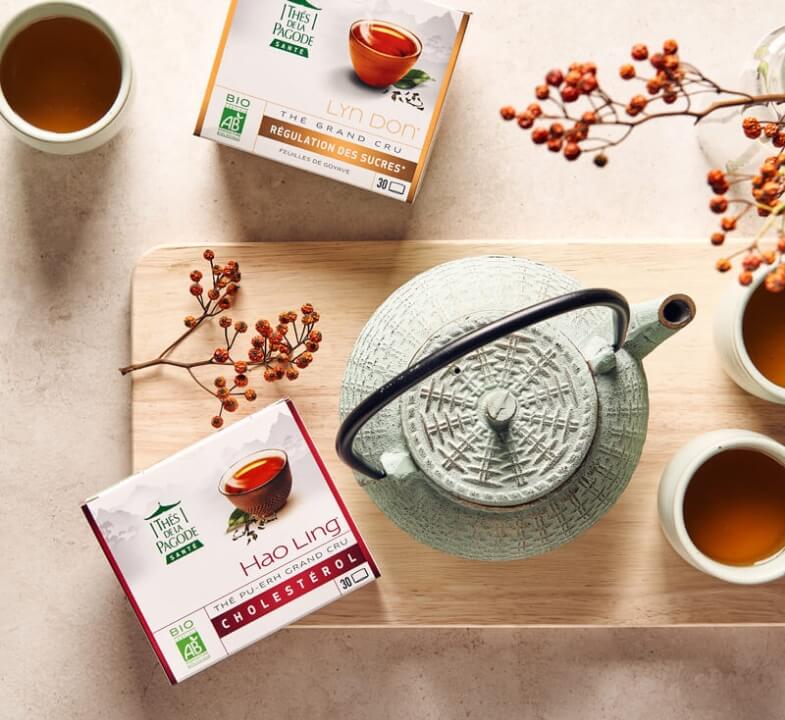
Hao Ling®
Hao Ling teas, post-fermented, are recommended to help digestion, intestinal transit, burn fat... The polyphenols in Hao Ling tea are powerful antioxidants that neutralise the harmful effects of free radicals. Thanks to its polyphenol content, Hao Ling tea has a positive effect on oxidative stress and therefore on cholesterol levels. We are the only ones to have measured these results in a scientific study
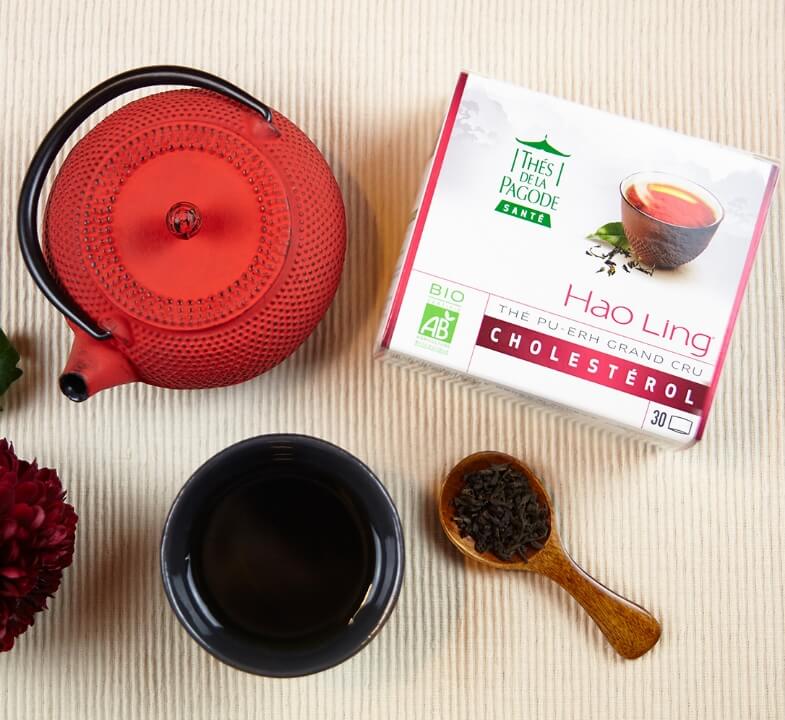
The results
The results of Hao Ling tea consumption on bad cholesterol levels were measured in two scientific studies:
- Both studies lasted 3 months and involved more than 100 patients divided into 2 groups: the placebo group and the Hao Ling group.
- These scientific studies were conducted in people aged 18 to 65, men and women, with hypercholesterolemia and never having been treated, with an LDL level > 1.90 g/L.
- The evolution of 3 parameters during the 3 months of regular consumption of Hao Ling tea was analysed:
- Total cholesterol: LDL (bad cholesterol) and HDL (good cholesterol)
- Apolipoproteins A1 (good cholesterol) and B (bad cholesterol)
- Triglycerides
- Patients were seen at baseline, day 30 and day 90. A blood sample was taken at each of these visits in order to measure the 3 parameters and to monitor changes.
Regardless of the population studied, the results of the two studies converge towards a favourable evolution of HDL-Cholesterol concentrations from 30 days of consumption of Hao Ling tea.
